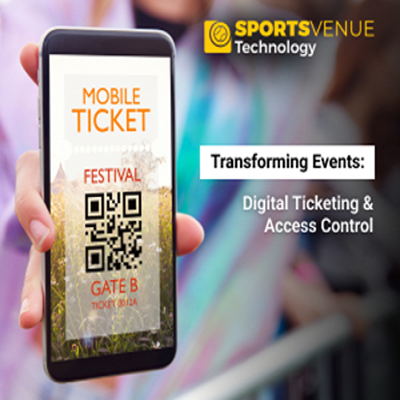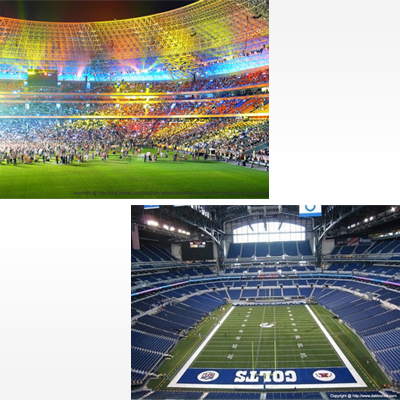Transforming Events: Digital Ticketing & Access Control

In an era marked by technological advancements and a growing need for seamless experiences, the landscape of event management has undergone a substantial shift. Traditional methods of ticketing and entry management have given way to a more streamlined and efficient approach - digital ticketing and access control. These innovative solutions have revolutionized the way patrons interact with events, enhancing convenience, security, and overall satisfaction. Let's delve into the intricacies of digital ticketing and access control and explore how they are reshaping the landscape of venue entry.
Understanding Digital Ticketing: Simplifying Access for Attendees
Gone are the days of standing in serpentine queues, fumbling for crumpled tickets, or facing the unfortunate scenario of misplaced passes. Digital ticketing has emerged as a user-friendly solution that simplifies the entire process. Through this technology, attendees can purchase tickets online, receive them via email or smartphone apps, and even have them directly stored in digital wallets. This not only saves time and resources but also reduces the environmental impact associated with paper ticketing.
With digital ticketing, attendees can conveniently access their tickets at any time, eliminating the risk of loss or damage. Moreover, these tickets often come equipped with unique QR codes or barcodes that facilitate swift and secure scanning at the venue entrance. This streamlined approach not only enhances the overall event experience for attendees but also enables event organizers to gather valuable data for future planning and marketing endeavors.
Efficient Access Control: Safeguarding Events and Ensuring Smooth Operations
Beyond simplifying the attendee experience, digital ticketing is intertwined with sophisticated access control systems that prioritize security and operational efficiency. Access control systems, integrated with digital ticketing, enable event organizers to monitor and regulate the flow of attendees, ensuring a safe and hassle-free experience for everyone involved.
| Also Read: Transforming Sports Experiences: The Evolution of Ticketing Systems |
These systems frequently incorporate sophisticated functionalities like live attendance monitoring, automated entry validation, and the capability to identify counterfeit tickets, effectively reducing the risks linked with fraudulent behavior. By integrating state-of-the-art technologies such as RFID (Radio-Frequency Identification) and NFC (Near Field Communication), access control systems enable smooth and swift entry, minimizing queues and congestion at entry points.
Furthermore, access control systems empower event organizers to gather valuable insights into attendee behavior, preferences, and demographics. By leveraging this data, organizers can optimize future events, tailor marketing strategies, and enhance overall event planning, leading to a more targeted and engaging experience for attendees.
Enhanced Attendee Engagement and Personalization
Digital ticketing and access control not only facilitate smoother entry processes but also open doors for enhanced attendee engagement and personalization. Through the integration of mobile apps and digital platforms, event organizers can communicate directly with attendees, providing them with personalized updates, special offers, and relevant event information in real-time.
| Also Read: The Impact of Modern Ticketing Systems on Sports Events |
This direct communication channel fosters a sense of community and engagement among attendees, fostering loyalty and a deeper connection to the event brand. Attendees can also benefit from personalized recommendations, exclusive content, and interactive features that add an extra layer of excitement and value to their overall event experience.
The Road Ahead: Embracing a Digital-First Approach
In the current digital transformation wave, the events industry is a key player, leading the charge. Digital ticketing and access control mark the initial phase of a tech revolution that will reshape our interaction with live events. With ongoing progress in AI, machine learning, and data analytics, the possibilities for improving security, personalization, and event management are limitless.
Building Trust and Safety through Data Security Measures
In an age where data breaches and security vulnerabilities pose significant threats, ensuring the integrity and security of attendees' information is paramount. With digital ticketing and access control systems, stringent data security measures are implemented to safeguard sensitive information, including personal details and payment information. Utilizing robust encryption protocols, secure servers, and multi-factor authentication, these systems fortify the trust between attendees and event organizers, fostering a safe and secure environment for all participants.
By prioritizing data security, event organizers not only uphold their commitment to protecting attendees' privacy but also establish a foundation of trust that nurtures lasting relationships and encourages repeat attendance. This emphasis on data security reassures attendees that their information is handled with the utmost care, instilling confidence in the reliability and professionalism of the event management process.
Adapting to Changing Consumer Behavior and Expectations
As the digital landscape evolves, so do consumer behaviors and expectations, with attendees increasingly seeking smooth and personalized experiences. Digital ticketing and access control systems play a crucial role in meeting these changing demands, focusing on convenience, customization, and instant engagement.
By embracing a customer-centric mindset, event organizers can adapt their strategies to align with the changing dynamics of consumer behavior. Customized ticketing options, tailored promotional offers, and interactive event experiences are some of the ways through which organizers can cater to the diverse and discerning preferences of their target audience. This adaptability fosters a sense of inclusivity and attentiveness, positioning events as not just one-time occurrences but as ongoing, dynamic engagements that resonate with attendees long after the event has concluded.
Fostering Sustainability and Environmental Responsibility
Beyond convenience and security, the adoption of digital ticketing and access control systems contributes significantly to the promotion of sustainable and eco-friendly practices within the events industry. By eliminating the need for paper tickets and minimizing the use of physical resources, these systems play a vital role in reducing the overall carbon footprint associated with traditional event management practices.
Event organizers, through the implementation of digital ticketing and access control, can contribute to a more sustainable future, aligning their initiatives with global efforts to minimize environmental impact. This commitment to sustainability not only resonates with environmentally conscious attendees but also positions events as responsible and forward-thinking entities that prioritize the well-being of the planet.
Embracing Collaboration and Innovation for a Dynamic Future
In a rapidly evolving digital landscape, collaboration and innovation are essential catalysts for growth and progress. Event organizers, technology providers, and industry stakeholders must collaborate to harness the full potential of digital ticketing and access control systems. By fostering a culture of innovation, these entities can collectively drive the development of cutting-edge solutions that redefine the benchmarks of efficiency, security, and attendee engagement within the events industry.
Through collaborative efforts, the scope for innovation expands, paving the way for the integration of emerging technologies such as blockchain, biometrics, and augmented reality, further enhancing the event experience and setting new standards for excellence and creativity. Embracing this culture of collaboration and innovation is crucial in shaping a dynamic future that continuously redefines the boundaries of what is possible within the realm of event management.
In conclusion, the era of digital ticketing and access control signifies more than just a technological evolution; it represents a fundamental shift in the way events are conceptualized, planned, and experienced. By prioritizing convenience, security, personalization, and sustainability, these technologies have redefined the very essence of the event experience, fostering a dynamic ecosystem that thrives on innovation, collaboration, and a deep understanding of attendees' needs and expectations. As we look towards the future, the trajectory of digital transformation within the events industry promises to be both transformative and exhilarating, setting the stage for a new era of immersive and engaging event experiences.





